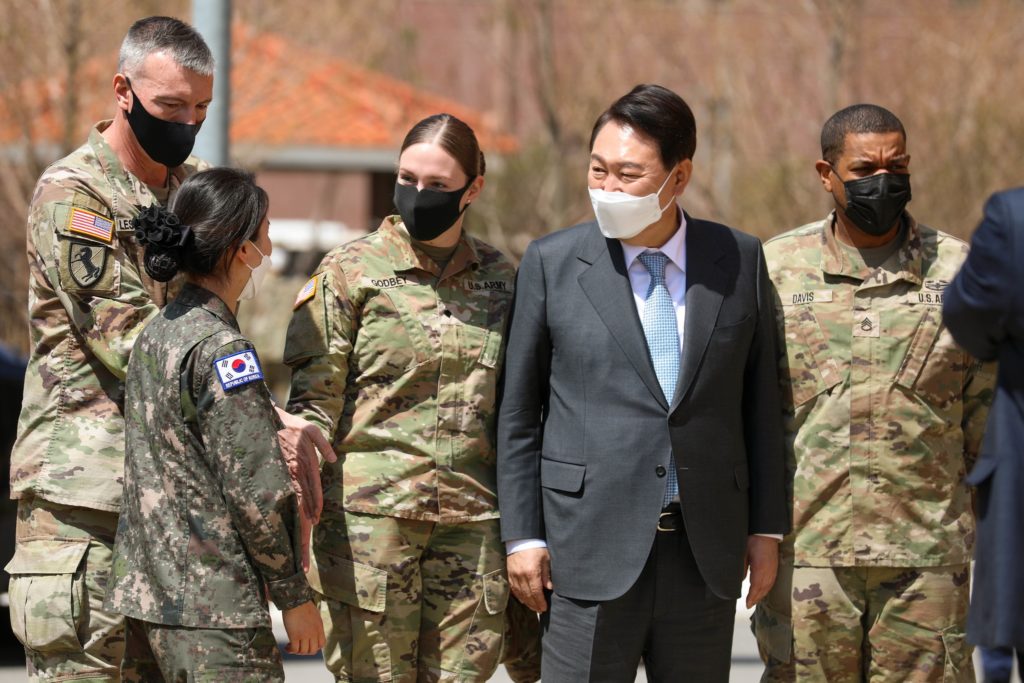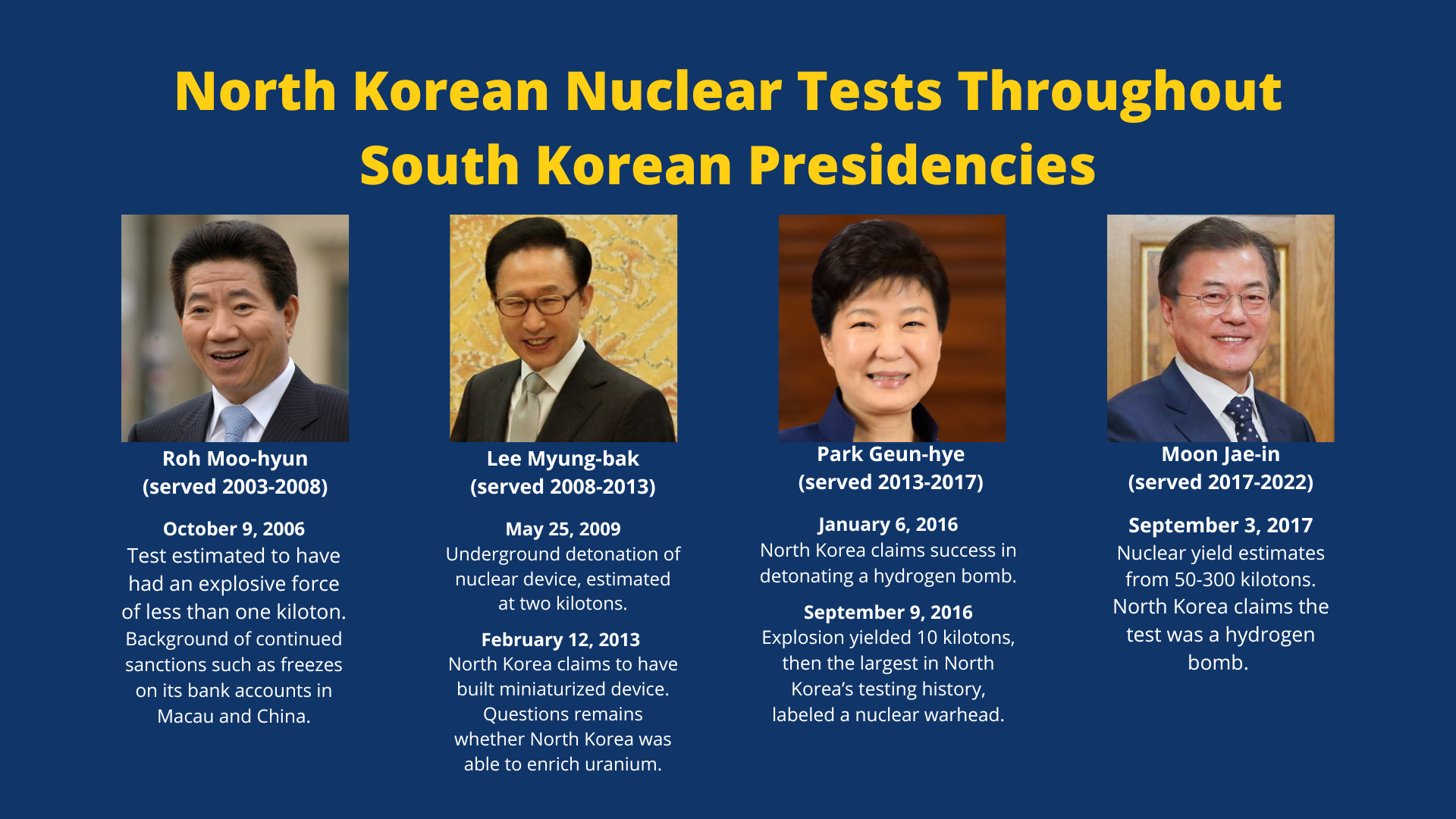The Peninsula
It Could Be a Long, Hard Five Years Dealing with North Korea for the Yoon Administration

Over the last half decade, the Korean Peninsula has seen the prospect of war during Donald Trump’s period of “fire and fury,” but also a period of negotiations that resulted in a series of North-South and U.S.-North Korea summits. While war was avoided, those efforts at negotiation ultimately failed. The aftermath of those failed negotiations, however, has been stalemate, with North Korea likely to remain an intractable problem that could worsen for the Yoon administration over the next five years.
North Korea continues to make significant advancements in its nuclear weapons and ballistic missile technology, and we should expect it to continue to do so. Based on recent tests, Pyongyang is working to develop submarine launched ballistic missiles, which would enhance the potential survivability of its nuclear weapons in the case of an attack. There are also concerns that Pyongyang is seeking to develop tactical nuclear weapons, while the regime has suggested that it is in the process of developing hypersonic weapons.
While North Korea is likely to remain a growing security challenge for the Yoon administration, security issues will likely not be the only complication regarding the DPRK in the years ahead.
Since the pandemic began, North Korea has followed a zero COVID policy. Placing severe restrictions on its border by all indications has prevented a major outbreak of COVID-19 in North Korea for the first two years of the pandemic, but that changed this May when Pyongyang announced its first confirmed COVID case and a rapidly spreading fever. North Korea has yet to accept significant aid to deal with the crisis, and none from South Korea or the United States, but unlike prior crises North Korea’s COVID-19 could spread beyond its border in the form of a new variant.
The border restrictions also came at a cost for North Korea. Despite periodic upticks, trade has largely come to a halt. Essential items such as food and fertilizer, while continuing to be imported, have declined significantly. With COVID-19 now believed to be spreading more freely in North Korea, trade has once again slowed. All of this has made the population in North Korea more vulnerable to hunger and disease, as aid workers have not been able to continue their work on communicable diseases such as tuberculosis.
The Russian invasion of Ukraine may only exacerbate some of the challenges presented by the pandemic as food prices rise and shortages grow.
With the prospect that COVID-19 could become endemic, that raises a series of questions the Yoon administration will need to consider. How long will Pyongyang be able to maintain its border closure without further placing an unbearable burden on the populace? How can the international community ensure not only that the population in North Korea is vaccinated, but that the regime is able to manage the risks of the pandemic becoming endemic? If Pyongyang is not able to transition to a living with COVID policy, what are the medium and long-term implications of a self-isolated North Korea for dealing with the nuclear program, the prospects for economic reform, and the daily lives of the populace?
An additional consideration for the Yoon administration will be U.S.-China relations. While China has not always taken the steps that U.S. or South Korean administrations have wanted on North Korea, there has been a working relationship. Navigating an increasingly antagonistic relationship between the United States and China could reduce the room for Seoul to maneuver on North Korea policy.
The last trend that Seoul will need to consider over the next five years is the prospect of political change in the United States. With Trump strongly suggesting that he may run again for the presidency in 2024, the Yoon administration may only have a short period of time to establish a North Korea policy with the Biden administration. While political change in the United States has always been a factor in North Korea policy, Trump’s first term suggests that the prospect for a more radical shift in approach to North Korea is possible.

Overall, the Yoon administration is likely to face significant challenges from North Korea during its time in office. We should expect that Pyongyang will continue its efforts to advance its nuclear weapons and ballistic missile systems. Most likely, South Korea, the United States, and Japan will face a more dangerous North Korea when Yoon leaves office than when he was sworn in, an unfortunate reality that nearly all presidents have faced. But Yoon could face deeper challenges on North Korea policy from Pyongyang’s continued self-isolation from the pandemic, increasing tensions between the United States and China, as well as the prospect of a sudden policy shift in the United States after the 2024 elections.
Troy Stangarone is Senior Director and Fellow at the Korea Economic Institute of America. The views expressed here are the author’s alone.
Photo from UNC – CFC – USFK’s photostream on flickr Creative Commons.
Graphic by Jae Chang, Kaitlyn King, and Yu Na Choi, interns with the Korea Economic Institute of America.
